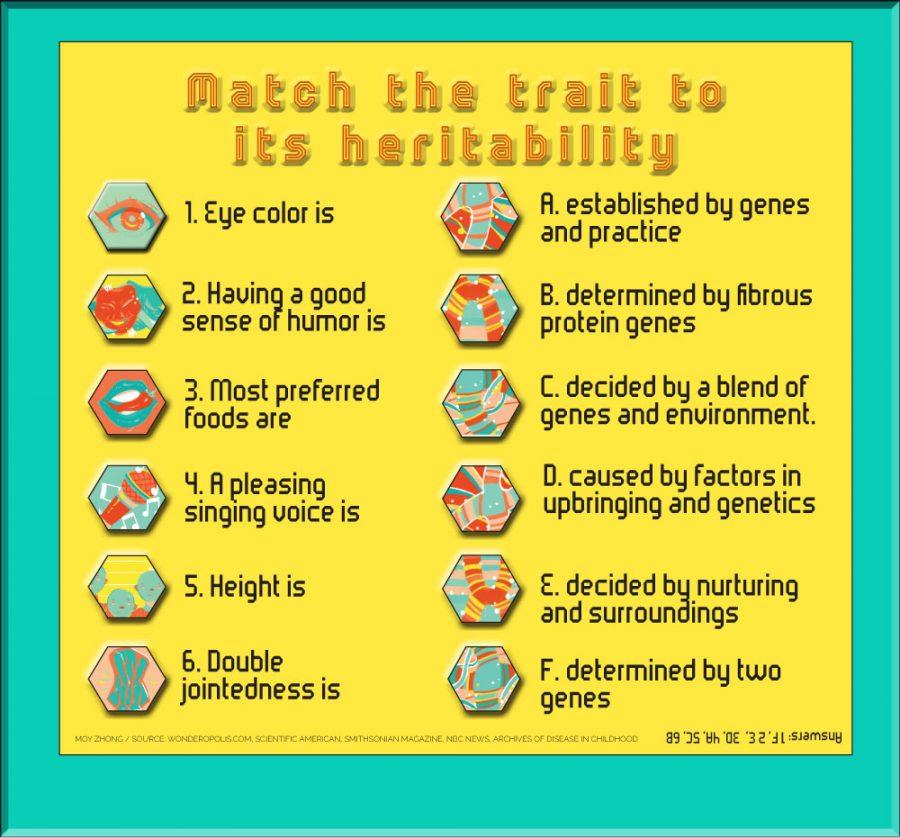Art by Moy Zhong
Wake up early. Inhale a few puffs of albuterol, a medicine to prevent constrictions of the muscles in the bronchioles’ walls. Then, do a vest, a machine that decreases mucus buildup in the lungs. Take hypersal, which helps to break down any bacteria in the same area further. Take enzyme pills and vitamins alongside eating. Come home and take albuterol and do another vest again. Repeat.
Sleep.
Repeat.
Such is the lifestyle that junior Jeffrey Mullen has grown used to for his cystic fibrosis (CF), which is an inherited disorder that causes mucus to build up in the lungs and block air flow, according to the CF Foundation. Additionally, CF inhibits the production of certain digestive enzymes, the reason for Mullen’s enzyme pills to compensate for it. Although used to the routine now, when Mullen was younger, CF posed a number of problems for him.
“My CF controls what I can do, especially [then], but I still did many sports like baseball, soccer and basketball. I had to go to the hospital many times probably a couple times a year, but ever since April of 2013, I haven’t gone back to the hospital.”
“It was frustrating when it came to sports,” Mullen said. “My CF controls what I can do, especially [then], but I still did many sports like baseball, soccer and basketball. I had to go to the hospital many times probably a couple times a year, but ever since April of 2013, I haven’t gone back to the hospital.”
Mullen references times when his lung functions would decrease dramatically, especially when falling ill with a sickness that affected breathing, like bronchitis. He would have to go into surgery to get rid of the infection, and stay in the hospital for an additional one to two weeks in case any complications arose.
“Eventually he did pass away back in 1997. When he died, he donated his body to research to study MS. What they discovered [was] that he didn’t have MS. He had this other genetic disease, CADASIL.”
He and his family, however, at least were able to easily obtain a diagnosis of CF and how to treat it. For studies teacher Shawnna Matteson, she and her husband weren’t aware of a rare disease that ran in the family until far into their parenthood life.
“My husband’s grandfather was originally diagnosed with MS [multiple sclerosis] and treated as such,” Matteson said. “He had several strokes that were debilitating. He got to a place where he was bedridden, unable to speak, that sort of thing. Eventually he did pass away back in 1997. When he died, he donated his body to research to study MS. What they discovered [was] that he didn’t have MS. He had this other genetic disease, CADASIL.”
CADASIL, or cerebral autosomal dominant arteriopathy with subcortical infarcts and leukoencephalopathy, is a hereditary disease that significantly increases the risk for stroke and other impairments. It affects blood flow in small blood vessels, especially those in the brain, according to the U.S. National Library of Medicine. Because these muscle cells are abnormal, they tend to die faster than normal cells and can additionally cause migraines, hallucinations and epilepsy.
When Matteson discovered the possibility of the condition, she began researching it. She came across advice that said if CADASIL runs in the family, it is important to go through genetic screening to determine if the parent has it before having a child.
She was pregnant with her second child at the time.
Matteson is unsure whether knowing about CADASIL previously would have changed her decisions to have children, though the knowledge brings up a new flurry of worries for them like if her children would have the condition, she said. Likewise, when Mullen was diagnosed with CF, he said it was out of the blue for his parents since they hadn’t undergone genetic screening.
“My parents freaked [out] because they didn’t know anything about it, and they tried really hard [to understand it],” Mullen said. “Over time, they knew pretty much everything [and] my dad became part of the board on the MU hospital. Because of [that] and many others that have CF, they now do genetic screening when a baby is born regardless to make sure the baby is healthy.”
Nowadays, genetic screening can influence the decision to have a child. Dr. Sarah Soden, an associate professor at the University of Missouri-Kansas City School of Medicine, said the rise of innovations in genetic technology and the awareness of hereditary diseases have contributed to the number of parents that request genetic screening. Dr. Soden said the combination of the former is what caused the requests to increase, however.
“Usually, parents who request a genetic test are aware of a possible hereditary condition, which is a circumstance I would recommend going through genetic testing in,” Dr. Soden said. “Whether they want to have a child or go with adoption is their decision, ultimately.”
“Especially with the ACA [Affordable Care Act] potentially being repealed and the policy with pre-existing conditions, it could be very easy for an insurance company to say ‘No, you have this disease, we won’t cover the costs of this illness because you know about it already.’ It’s kind of a weight hanging over our heads.”
Genetic screening or testing, however, may not be a viable option to an individual, as is the case for Matteson. She and her husband have decided not to undergo testing to see if he does, indeed, carry the gene for CADASIL, for insurance purposes.
“Part of the fear of finding out whether not he carries it is health insurance,” Matteson said. “Especially with the ACA [Affordable Care Act] potentially being repealed and the policy with pre-existing conditions, it could be very easy for an insurance company to say ‘No, you have this disease, we won’t cover the costs of this illness because you know about it already.’ It’s kind of a weight hanging over our heads.”
In response to the lack of knowledge of whether her husband carries the disease, they came up with a plan that would ensure stability in their home, were the worst to occur.
“One of the things that my husband and I have done [with] knowing that he could become disabled very suddenly [is that] we have financially planned a way that we [wouldn’t] go into debt,” Matteson said. “Right now, our only debt is our student loans and home mortgage. Cars are paid off, we have no credit card debt, we have savings, that sort of thing. I think this goes for anybody — it’s a good way to live. If you suddenly become disabled, you don’t want to go into financial ruin. We particularly do that knowing that possibility exists.”
Although this worries Matteson, she said she tries to not dwell on it too much as this is just one of the many things life chose to throw at her family; it could have been anything else just as bad.
“That idea does make me sad to think that my kids might be at risk for that, because to be that young and have a stroke and be debilitated, however severely that stroke comes out, that does make me kind of sad,” Matteson said. “But I feel like everybody’s got their burdens, and life’s just a choice anyway. We make the most of it, plan for the worst and hope for the best.”
Would want to know early about a possible illness? Leave a comment below.
















































































